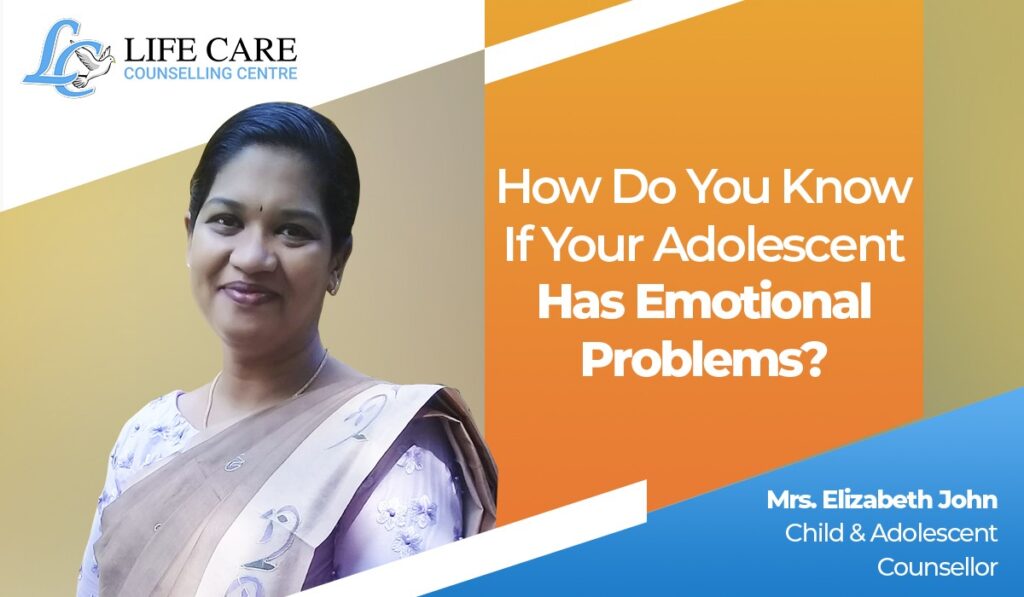Adolescence is the most difficult times for the parents as their children go through several riotous transitions that are part and parcel of adolescence stage. They have to encounter several physical, emotional, hormonal, sexual, social, intellectual pressures and problems, which could lead to a variety of mental health disorders which also include depression.
Hi, I am Elizabeth John, Lead Child & Adolescent Counselor, Lifecare Counseling Center. I have handled several young patients who were mostly teenagers and were facing a host of pressures because when they enter into puberty, lots of questions knock into their mind about who they are and what is the purpose of their life. All this confusion and uncertainty makes it extremely different to differentiate between a normal teenager and the one with growing depression. Here comes the responsibility of the parents to help their children through love, proper guidance, and support. Their positive support can help their teen to overcome depression and lead a happy & healthy life. I help such teens through counseling and also guide their parents on how to handle emotional problems of their adolescents.
How you can find out that your adult child is going through depression?
There are several signs that can help you notice the emotional problems of your adolescent:
- If you see them sad or irritable for most of the day, then these are the signs of depression condition.
- They will keep getting angry or may look more tearful or cranky or saying that they are sad.
- If aches and pains when nothing is really wrong.
- If their school grades start dropping significantly and they find trouble in focusing or making choices.
- If they are merely interested in discussing their future.
- If they develop feelings of unimportance or culpability and have low self-esteem.
- If they don’t want to be with their family or friends.
- If they feel unable to do simple tasks or lacking the energy to simple tasks.
- If they frequent think about death or suicide.
- If they sleep too little at night or too much during the day.
- If they stop enjoying things that used to make them happy earlier.
- If you see them eating a lot or not eating at all, resulting in either an increase or decrease in weight.
What are the Key Tips for Parents?
Communicate Constantly With Your Teen: Communication is important to strengthen any relationship. Keep constant, open and honest communication with your children. This will help them gain confidence and give them the assurance that they can talk about anything with their parents. You should talk about your own experiences, confusions, and fears, and tell them how you used to feel when you were an adolescent. Being a parent, it is your responsibility to gain their confidence and let them know that they are not alone. Also, assure them that their anxieties are not unique, this happens.
Believe yourself first that mental health disorders are treatable: You need to first believe this fact that the mental health disorders among adolescents are common and treatable. Help your child by taking help of a child’s pediatrician, local health department, school representatives and your religious leaders. Discuss your child’s problem with them and find out what kind of information is available from them.
Keep a check on your teen’s behavior: Adolescence is, in fact, a time of change and transition, but if you notice stern, dramatic, or sudden changes in the behavior of your adolescent, then it can be a strong indicator of serious mental health issues which could be depression as well.
How To Overcome This Situation?
If you think you cannot handle your teenager’s problem and want to help him/her from getting out of this mental health issue, then take help of Child & Adolescent Counselor. It is always suggested to take help of experts, as they can better understand the problem of your child, find out what is going inside their mind and how they can get your child out of the dilemma. They have special therapies and treatment plans that can best treat them well.
It is a suggestion for all parents to follow the treatment plan and make sure your teen attends therapy and takes medicine on time or as directed (if given). These treatments work, but it may take a few weeks. Create a list of people to call when you think your teen is not feeling well. Always keep an eye on your child for risk factors for suicide. These include – suicide discussions in person or on the internet, increased thoughts about death, giving away belongings, and feelings of substance abuse.



